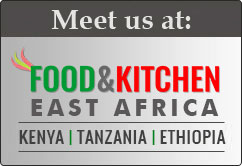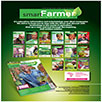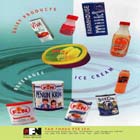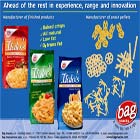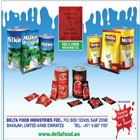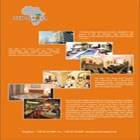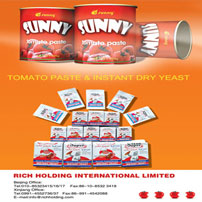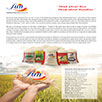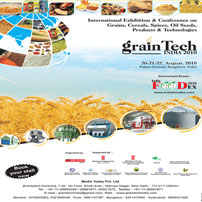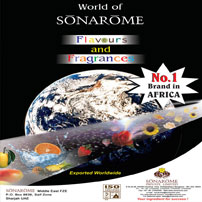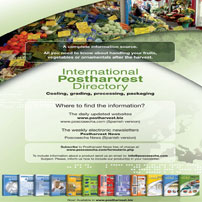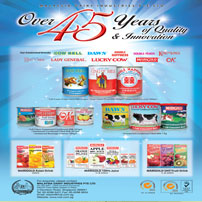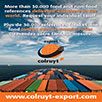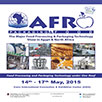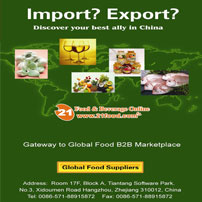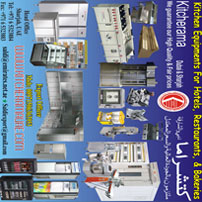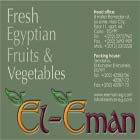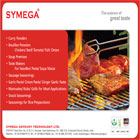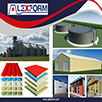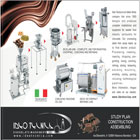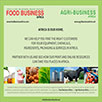

M a r k e t N e w s
Nairobi Showgoers Thrilled By New Farming Technologies
Posted on : Thursday , 9th October 2014
The Nairobi ASK trade fair was held last week and the main focus was on farming technologies. The theme of this year's show was enhancing technology in agriculture and industry for food security.
Many thronged the fair to get knowledge and information on the best farming technologies that would help them cope with the changing patterns of the weather that are being experienced currently. Here are a few of the technologies that were showcased:
Trapping technology for tsetsefly control
Tsetsefly infested regions in Kenya continue to record less tsetse flies thanks to the biconical and NGU traps interventions and other scientific methods that have effectively controlled the insect.
According to Safari Limo, a technologist from the Kenya Tsetse and Trypanosomiasis Eradication Council ( KENTTEC), five regions including Nyanza, Western, Bogoria, Mara, Mwea and Meru have been mapped out as hotspots for tsetseflies.
Limo says the biconical trap is placed in a thicket with a blue and white cloth which is laced with attractants that produce a similar smell to the breath of a buffalo which is a common host of tsetseflies.
Once the flies get in, they are trapped together with other species of flies. The NGU trap is used in tsetse fly hot spots because it has a polythene bag inside the trap.
"This is a very effective way of controlling the flies because once they land in the polythene they automatically die of suffocation," Limo says.
Dr Othieno Joseph, a veterinary doctor and communications manager at KENTTEC, says that tsetsefly control is critical in the development of this nation.
"Tsetseflies affect almost all sectors and more seriously, the tourism sector due to sleeping sickness which affects wildlife. Tsetseflies are very common in the protected wildlife areas and we work closely with communities by educating them and also proving them with insecticides to fully eradicate tsetseflies," he concludes.
Other methods which are environmentally friendly used in tsetsefly control are aerial spraying and sterilising the male tsetseflies because a female only mates once in a lifetime. Sterilising the population is controlled scientifically and all these methods are.
Water harvesting technology using green house.
Have you ever thought that you can harvest water from a greenhouse? Well, this is possible through an integrated method where water is harvested on the roof of a green house then the water is channeled to a fish pond.
The technology is set up in a way that all the water that is released from the fish pond goes through an underground channel back into the greenhouse where crops are growing.
Joshua Waithaka, a technician from National Water and Irrigation Board says this technology is very economical and has massive benefits to the farmer.
"The fish that is fed in the aquaponic pond releases water with nutrients to the green house and therefore no water is wasted here," he says.
The technology is very useful in dry places where water is scarce. Joshua says that this technology allows the farmer to add fish on the project without worrying a lot about where water for the fish will come from.
"In the green house there are a variety of crops that can be grown in the greenhouse to give income to the farmer. This is another way of adapting to the harsh climatic conditions that are threatening many livelihoods in the Sub-Saharan Africa," Waithaka says.
Aquaponics- a home based gardening
Farming space is decreasing as people struggle with many challenges including weather and population growth, which have made land expensive and scarce in regions that receive good rainfall.
To address this, Jomo Kenyatta University of Agriculture and Technology (Jkuat) have invented a home based farming method where plants and fish co-exist and provide nutrients to each other while water and space are saved on.
Mark Nyandege, a technician in the Zoology department, JKUAT says home based gardening is done by raring fish and planting vegetables, through a technology known as aquaponics. Two tanks are involved and there is a separate airator which sucks oxygen from the atmosphere and supplies it to the fish in the tank. One tank has vegetables and the other one has fish.
The whole process involves water from the fish which has ammonia mixing with water through a narrow pipe from the garden where the bacteria works on nitrates.
Aquaponics is a food production system that combines conventional aquaculture (raising aquatic animals such as snails, fish, crayfish or prawns in tanks) with hydroponics(cultivating plants in water) in a symbiotic environment.
Nyandege says the technology is simple and not very costly to install at home, it costs about Sh20,000 for the whole unit to be installed in a home.
"Energy is key for the pumping of the water and also for the machine that sucks oxygen from atmosphere and supplies it to the fish," he says.
This technology uses less water, the vegetables are a source of vitamins, less space is occupied and it can be planted anywhere proved the two small tanks are available. This is an adaptation mechanism to climate change effects which have affected many people in Kenya and the rest of Africa.
"I invested in this type of farming last year and because I don't have land, I got a loan from a microfinance institution and started farming. With this system I don't use a lot of water and space. I get fish which I sell locally and at the same time I don't buy vegetables from the market. My children get to eat fish too, so we are a happy family with food available," says Mercy Nyambura, who is a beneficiary of this technology.
Organic nutrients from rice husks
Moses Kareithi Mwangi a rice farmer from Mwea uses carbonised farm by-products to improve on his soil quality.
"I used rice husks which are processed and burnt in an improved carboniser machine that has a provision for controlling air and temperature regulation," says Kareithi.
Kareithi operates a rice nursery in his two acre farm which he supplies seedlings to other farmers who are involved in rice farming.
"This technology of carbonising is very good with most horticulture crops because all the materials used are waste products from the farm, hence all the nutrients are ploughed back into the farm," he says.
According to the National Irrigation Board carbonising rice husks has been one of the best technologies in improving on rice production. They had displayed the various technologies in rice farming where carbonizing was of great interest to many in rice farming.
The process involves the rice husks being placed in a carboniser and burnt under high temperatures of 300 -500 degree Celsius. The husks are then cooled and collected then spread in a rice nursery covering all the roots. This process improves on the soil texture, rooting system and also enhances polarity.
Carbonising is beneficial to the farmer in that, cost of production is very minimal especially in terms of using fertiliser, productivity in the farm is improved as well as water retention of the soil.
Kareithi says he been able to improve on his production and income since he started carbonising his farm.
Source : www.allafrica.com


